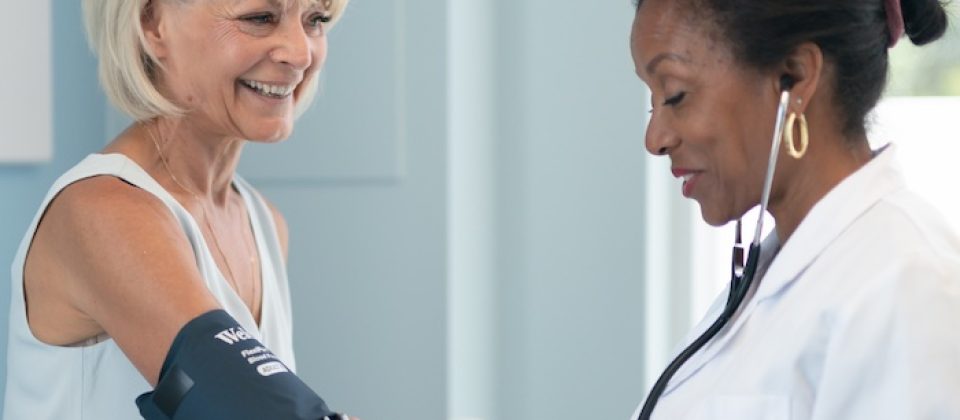
High Blood Pressure Falls
Falls are serious at any age, but especially for older people who are more likely to break a bone when they fall. Falls are the most common cause of nursing home placement. The risk of falling increases with age. Keep in mind, falls and accidents seldom “just happen.”
Medicines that lower blood pressure can cause balance problems and dizziness, leading to falls and injuries. High blood pressure affects many older people, whose bones tend to be weaker, and for whom a fall injury— such as a broken bone—can have serious health consequences
High blood pressure (140/90 mmHg or higher) is referred to as “the silent killer” because it usually has no specific symptoms and no early warning signs. Both you and the senior in your care should have blood pressure checked regularly.
Researchers studied whether there was any link between the number of people taking blood pressure drugs and the number of people who had serious falls. Compared with people not taking blood pressure drugs, those taking the drugs were more likely to have a serious fall. But remember, you or the person in your care, should NEVER change medications without the doctor’s advice.
Regular exercise as well as regular eye and physical exams may help reduce the risk of falling. Getting rid of tripping hazards in the home will also help. Getting enough calcium and vitamin D reduces the chances of breaking a bone if a fall does occur. If the person in your care has osteoporosis, they are more likely to break a bone if they fall. Osteoporosis is called the “silent disease” because bones become weak with no symptoms. People often find out they have it when a strain, bump, fall, or even a cough causes a bone to break. Suggest the person in your care get tested.
Preventing Falls
To reduce the risk of falls:
- Use a cane or walker, if needed
- Wear low-heeled rubber soled shoes that don’t slip and do not walk in socks, stockings, or slippers
- Walk on grass when sidewalks are slick
- Put salt or kitty litter on icy sidewalks
- Keep floors free of clutter
- Be sure rugs have skid-proof backs
- Stairs should be well lit with hand rails on both sides
- Put grab bars on bathroom walls near tub, shower, and toilet
- Use a nonskid bath mat in the shower or tub
- Keep a flashlight next to the bed
- Keep rooms well lit
Fainting
Fainting can be caused by—
- a heart attack and a change in blood pressure
- medications
- low blood sugar and standing up quickly
- straining to have a bowel movement
- dehydration
Sometimes, fainting can be prevented:
- Ask a doctor if medications that do not cause fainting can be prescribed.
- Monitor blood sugar levels
- Monitor blood pressure
- Avoid constipation
- Do not let the person stand up or sit up too rapidly
If a fainting spell occurs:
- Do not try to place the person in a sitting position. Instead, immediately lay him down flat.
- Check the person’s airway, breathing, and pulse.
- Turn the person on his side.
- Elevate the legs.
- Cover him with a blanket if the room or floor is cold.
- Do not give fluids.
- Call 911 if person is having difficulty breathing or is not breathing or does not respond to your voice and touch.
- If not breathing, be prepared to give Rescue Breathing and start CPR as instructed in CPR class.
NOTE – Ladies, Don’t Delay in Going to the Hospital One of the reasons women die more often than men following a heart attack is that women wait longer to go to the hospital. More heart muscle has already died by the time they receive treatment.
Taking Care of Yourself – A Bad Marriage Can Lead to a Broken Heart
A study of married couples in their 70s and 80s shows that older couples in an unhappy marriage have a higher risk of heart disease. Negative marriage qualities — such as having a critical spouse — have a bigger effect on heart health than positive marital qualities. The study concluded that being in an unhappy marriage caused stress, which can be harmful to cardiovascular health. The study emphasizes the need for marriage counseling as marriages grow older, not just in their early stages.
NOTE – Dizziness can mean different things—balance problems, feeling faint, light-headed, weak, or unsteady. Some causes are minor problems, some are serious and even life-threatening. If you feel dizzy regularly and you do not know why you are dizzy, you should see your doctor to get it checked out.
Safety Tips – Water Therapy
Water therapy is a time-tested form of healing. It is also a safe way for a senior or a person with a disability to exercise because there is no danger of falling. Floating in water allows easy movement and little strain on joints and muscles. Using a kickboard or simply walking in place in water may produce aerobic benefit. Water also resists movement, so it produces increased heart rate in less time. Water can also be a good place to exercise for those with balance problems. Talk to a physical therapist about whether a water aerobics class might be appropriate for the person in your care. YMCAs often offer water aerobics classes for people of all abilities.